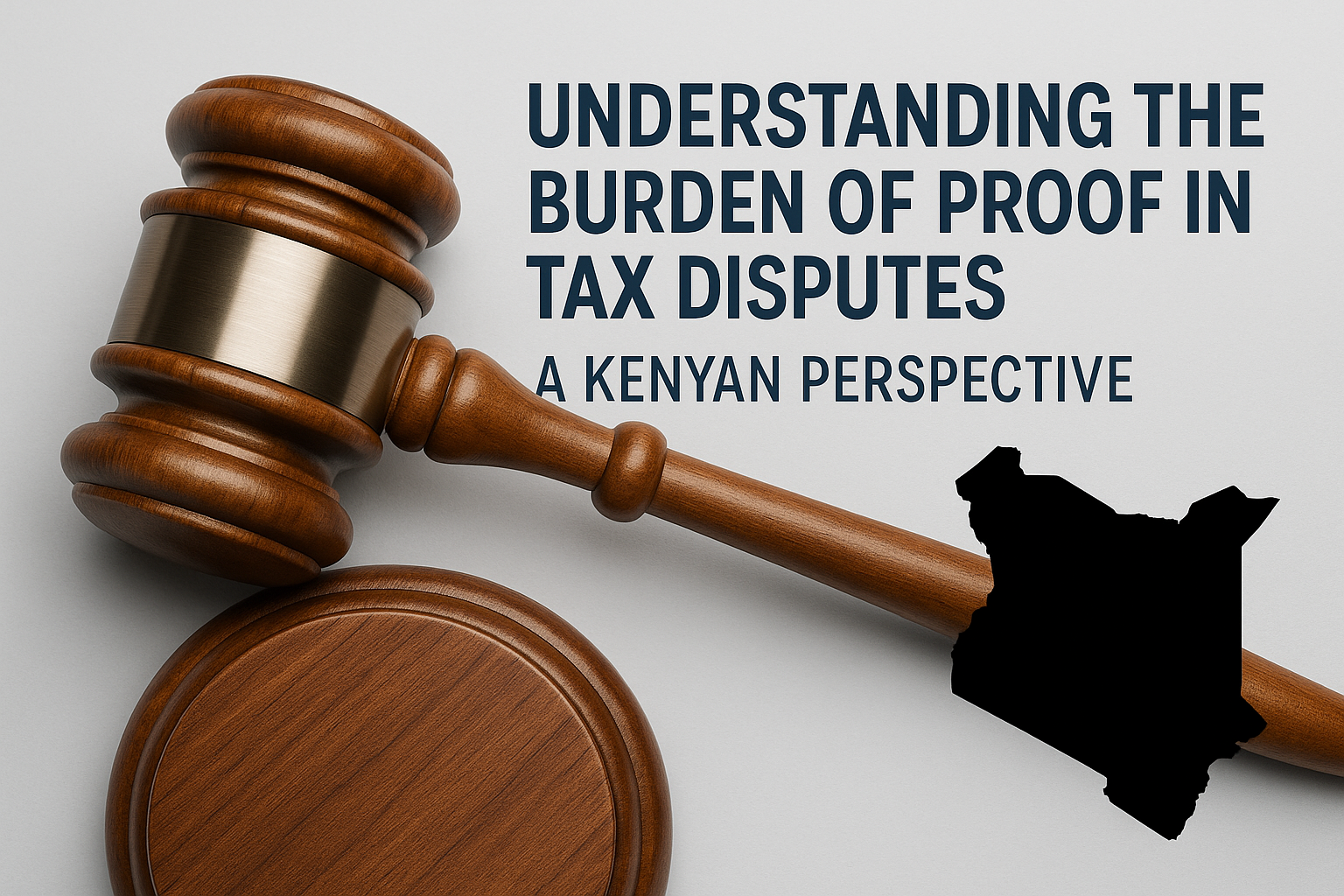WHAT IS A TAX PRIVATE RULING?
A private ruling is a written statement from the tax authority about how a particular tax law applies to you in specific circumstances. It’s a way to get clarity on how tax laws will be applied to your situation before you make decisions or take actions that could have tax implications. A private ruling is a binding advice provided by the Kenya Revenue Authority that provides how a tax law applies to a specific taxpayer in relation to a specific scheme or circumstance. Private rulings extend beyond income tax laws to encompass indirect taxes like luxury car tax or goods and services tax. They also address determinations such as distinguishing between a hobby and a business or assessing the value of items.
BASIS OF TAX PRIVATE RULING
The Kenya Revenue Authority (KRA) issues private rulings pursuant to Section 65 of the Tax Procedures Act (TPA), whereby it provides its interpretation of tax laws regarding specific transactions upon taxpayer application. This application must be in writing and include full disclosure of all pertinent transaction details, the query for interpretation, and the taxpayer’s own understanding of the matter. Although the ruling is binding on the KRA, it does not hold the same obligation for the taxpayer.
The Taxation Procedures Act (TPA) offers taxpayers a means to obtain private rulings when tax laws are ambiguous. Section 65 of the TPA mandates that taxpayers must fully disclose all pertinent facts regarding a transaction for which they seek such a ruling. This disclosure requirement ensures that the tax authority receives comprehensive information, enabling them to make informed decisions. Seeking a private ruling is particularly valuable in situations where tax laws lack clarity, providing taxpayers with clarity and certainty about their tax obligations. By adhering to the disclosure mandate outlined in Section 65, taxpayers demonstrate transparency and facilitate the accurate interpretation and application of tax laws. In essence, the private ruling process serves as a mechanism for taxpayers to navigate uncertain tax scenarios by providing them with authoritative guidance based on their specific circumstances, thereby promoting compliance and minimizing the risk of disputes with tax authorities.
EFFECTS OF TAX PRIVATE RULING
A private ruling on tax can have several effects, both for the taxpayer requesting the ruling and for others who might be affected by it. Here are some potential effects:
- Clarity and certainty: One of the primary purposes of seeking a private ruling is to gain clarity and certainty on how a particular tax law applies to a specific situation. The ruling provides the taxpayer with guidance on how the tax authority will interpret and apply the law to their circumstances.
- Compliance: A private ruling can help the taxpayer ensure that they are complying with their tax obligations correctly. By following the guidance provided in the ruling, the taxpayer can minimize the risk of underpayment or overpayment of taxes and avoid potential penalties or interest charges.
- Risk mitigation: For complex tax matters or situations where the interpretation of tax laws is uncertain, a private ruling can help mitigate the risk of disputes with the tax authority. If the taxpayer follows the guidance provided in the ruling and acts in good faith, they may have a stronger position in the event of an audit or investigation.
- Precedent: Private rulings may set a precedent for similar cases in the future. Other taxpayers facing similar circumstances may refer to the ruling to understand how the tax authority is likely to interpret the law in their situation. However, it’s important to note that private rulings are generally binding only on the taxpayer who requested them and the tax authority issuing them.
- Confidentiality: Private rulings are typically confidential between the taxpayer and the tax authority. This confidentiality protects sensitive financial and business information from being disclosed to the public or to competitors.
- Costs: While seeking a private ruling can provide clarity and certainty, it may also involve costs, including application fees and professional fees if the taxpayer seeks assistance from tax advisors or lawyers. However, these costs may be justified by the potential benefits of obtaining a favorable ruling and avoiding potential tax liabilities or disputes.
Overall, the effects of a private ruling on tax can vary depending on the specific circumstances of the taxpayer and the nature of the ruling. However, in general, private rulings can provide valuable guidance and certainty for taxpayers navigating complex tax laws and regulations.
CONCLUSION
Taxpayers have the opportunity to seek a private ruling when they encounter unique circumstances that could have unforeseen tax implications. This avenue allows individuals to address concerns regarding transactions or events that deviate from conventional tax practices or involve unconventional financial arrangements. By seeking a private ruling, taxpayers aim to mitigate the risk of encountering unexpected tax outcomes. This process serves as a proactive measure to ensure compliance with tax laws and regulations while minimizing the potential for unintended financial consequences. In essence, it provides a means for taxpayers to gain clarity and assurance regarding the tax treatment of their specific situation, thereby promoting transparency and accountability in the tax system.
It’s important to note that if a private ruling pertains to a specific tax law, it may be modified if that law undergoes changes due to legislative amendments or court rulings. However, it’s worth mentioning that if a taxpayer adheres to a ruling and it’s subsequently discovered that the ruling misinterpreted the law, there’s typically some safeguard in place. This protection allows taxpayers to request exemption from repaying any owed tax, along with associated interest and penalties. In essence, while private rulings are subject to adjustments in line with evolving tax legislation and legal precedents, following a ruling in good faith usually grants taxpayers recourse in case of misinterpretation or error in its application.
NEED HELP?
Do you have a lingering tax issue, you can ask the consultants at FHC anything about tax, do it today.














